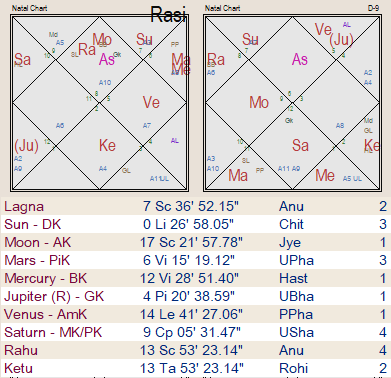
Friedrich Wilhelm Nietzsche (15 October 1844 – 25 August 1900) was a German classical scholar, philosopher, and critic of culture, who became one of the most influential of all modern thinkers. He began his career as a classical philologist before turning to philosophy. He became the youngest person to hold the Chair of Classical Philology at the University of Basel in Switzerland in 1869, at the age of 24, but resigned in 1879 due to health problems that plagued him most of his life; he completed much of his core writing in the following decade. In 1889, at age 44, he suffered a collapse and afterward a complete loss of his mental faculties, with paralysis and probably vascular dementia. He lived his remaining years in the care of his mother until her death in 1897, and then with his sister Elisabeth Förster-Nietzsche. Nietzsche died in 1900, after experiencing pneumonia and multiple strokes.
Nietzsche’s work spans philosophical polemics, poetry, cultural criticism, and fiction while displaying a fondness for aphorism and irony. Prominent elements of his philosophy include his radical critique of truth in favour of perspectivism; a genealogical critique of religion and Christian morality and a related theory of master–slave morality; the aesthetic affirmation of life in response to both the “death of God” and the profound crisis of nihilism; the notion of Apollonian and Dionysian forces; and a characterisation of the human subject as the expression of competing wills, collectively understood as the will to power. He also developed influential concepts such as the Übermensch and his doctrine of eternal return. In his later work, he became increasingly preoccupied with the creative powers of the individual to overcome cultural and moral mores in pursuit of new values and aesthetic health. His body of work touched a wide range of topics, including art, philology, history, music, religion, tragedy, culture, and science, and drew inspiration from Greek tragedy as well as figures such as Zoroaster, Arthur Schopenhauer, Ralph Waldo Emerson, Richard Wagner, Fyodor Dostoevsky, and Johann Wolfgang von Goethe.
After his death, Nietzsche’s sister Elisabeth became the curator and editor of his manuscripts. She edited his unpublished writings to fit her German ultranationalist ideology, often contradicting or obfuscating Nietzsche’s stated opinions, which were explicitly opposed to antisemitism and nationalism. Through her published editions, Nietzsche’s work became associated with fascism and Nazism. 20th-century scholars such as Walter Kaufmann, R. J. Hollingdale, and Georges Bataille defended Nietzsche against this interpretation, and corrected editions of his writings were soon made available. Nietzsche’s thought enjoyed renewed popularity in the 1960s and his ideas have since had a profound impact on 20th- and early 21st-century thinkers across philosophy—especially in schools of continental philosophy such as existentialism, postmodernism, and post-structuralism—as well as art, literature, music, poetry, politics, and popular culture. read full bio at wiki
Madness and Death –
On 3 January 1889, Nietzsche suffered a mental breakdown. Two policemen approached him after he caused a public disturbance in the streets of Turin. What happened remains unknown, but an often-repeated tale from shortly after his death states that Nietzsche witnessed the flogging of a horse at the other end of the Piazza Carlo Alberto, ran to the horse, threw his arms around its neck to protect it, then collapsed to the ground. In the following few days, Nietzsche sent short writings—known as the Wahnzettel or Wahnbriefe (literally “Delusion notes” or “letters”)—to a number of friends including Cosima Wagner and Jacob Burckhardt. Most of them were signed “Dionysus”, though some were also signed “der Gekreuzigte” meaning “the crucified one”. After news came, on 6 January 1889 Nietzsche’s friends and family travelled to Turin and brought Nietzsche to a psychiatric clinic in Basel. By that time Nietzsche appeared fully in the grip of a serious mental illness.
In 1898 and 1899, Nietzsche suffered at least two strokes. They partially paralysed him, leaving him unable to speak or walk. He likely suffered from clinical hemiparesis/hemiplegia on the left side of his body by 1899. After contracting pneumonia in mid-August 1900, he had another stroke during the night of 24–25 August and died at about noon on 25 August.
His friend and secretary Gast gave his funeral oration, proclaiming: “Holy be your name to all future generations!”
Birth Chart of Friedrich Nietzsche-











